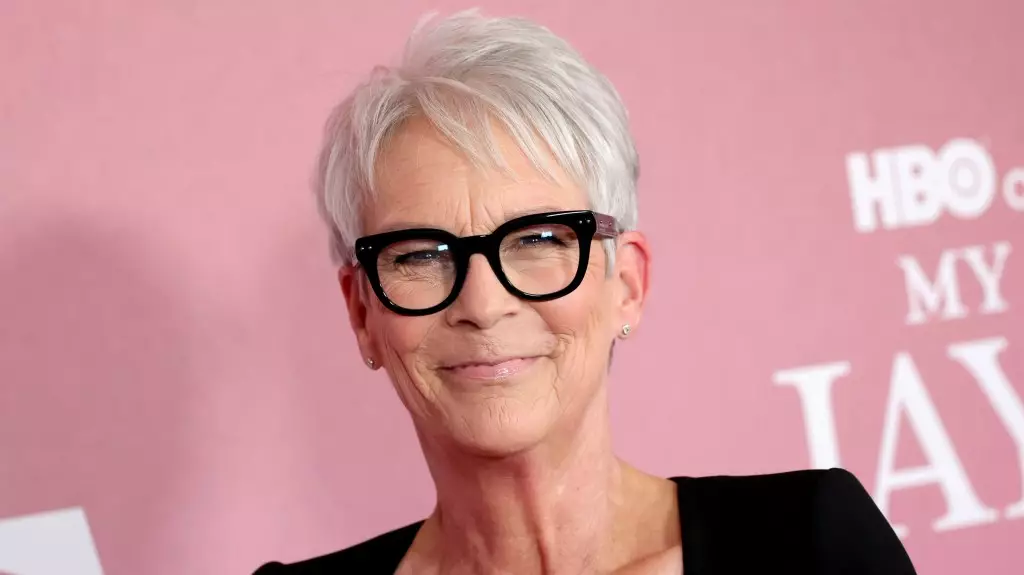In an industry captivated by perpetual youth, Jamie Lee Curtis’s candid insights serve as a wake-up call to the cinematic world’s obsession with age and beauty. Her honest recounting of her parents’ careers offers a stark reminder of how Hollywood discards its stars once they cross a certain age threshold, especially women. Curtis’s reflections underscore a systemic issue—an industry that not only values youth but actively shuns aging bodies and faces, turning what should be revered experience into an undesirable liability. Her vulnerability in sharing her familial struggles reveals a profound truth: maintaining relevance in Hollywood is akin to navigating a minefield where aging is an enemy, not an asset.
Curtis’s decision to prepare for early retirement is an act of quiet defiance. It underscores the emotional toll of constantly fighting against a relentless narrative that equates aging with obsolescence. Her declaration—”I want to leave the party before I’m no longer invited”—embodies a desire for dignity and self-respect, refusing to be a victim of industry dictates. This stance is compelling; it questions whether the industry’s obsession with youth is worth sacrificing the richness of aging and the insights that come with it. Curtis isn’t just contemplating her departure; she’s challenging the very culture that might force her out.
The Cosmetic Culture and the War on Natural Beauty
Juxtaposed with her critique of Hollywood’s ageism is Curtis’s powerful critique of the cosmetic surgery industry. Her provocative photoshoot, featuring oversized plastic lips, boldly condemns the rampant normalization of beauty-altering procedures. Her own experience—having undergone plastic surgery at 25 and regretting it—adds a layer of credibility to her stance. Curtis’s use of visual symbolism, like the wax lips, transforms her personal regret into a symbolic protest against a societal trend that pressures women to distort their natural features.
Her outspoken language about the “genocide” of natural beauty might seem incendiary, but it’s rooted in a genuine concern. She views the proliferation of cosmetic procedures and filters—amplified dramatically by artificial intelligence—as a cultural erosion. Curtis’s argument that we are witnessing the disfigurement of a generation of women is both stark and compelling. By equating chemical and surgical alterations with disfigurement, she challenges the shallow ideals perpetuated by media and technology. Her voice acts as a poignant reminder that authentic beauty lies in embracing our natural selves, not in chasing an ever-elusive, artificially softened ideal.
The Industry’s Double Standard and the Fight for Authenticity
Curtis’s voice is ringing in a landscape that desperately needs re-evaluation. Hollywood’s double standard—favoring youthful women while sidelining aging ones—is a glaring cultural inconsistency. The actress’s stance suggests that change is overdue. Her advocacy for authenticity, driven by her personal experiences and moral conviction, turns her into a potent symbol of resistance.
Moreover, her criticism of media’s obsession with filtering and altering images highlights a broader societal obsession with perfection. She questions whether “better” actually means “fake” and warns of the dehumanization that results from prioritizing superficial appearances over genuine aging grace. Curtis’s commentary goes beyond vanity; it’s about integrity, about valuing our natural appearance and refusing to be manipulated by an industry that profits from disfiguring genuine beauty.
Her diversity of projects—ranging from sequels and remakes to producing and starring roles—demonstrates her resilience and refusal to conform. Her participation in projects like “Scarpetta,” which already boasts multiple seasons, exemplifies her commitment to creating meaningful, age-affirming storytelling. Her activism extends beyond words, actively shaping narratives that challenge ageism and promote authentic representation.
Jamie Lee Curtis’s candid reflections serve as both a personal manifesto and a cultural critique. Her unflinching stance against industry hypocrisy, cosmetic overreach, and societal superficiality elevates her to a symbol of the resistance for natural aging and honest beauty. Her journey urges us to question the values that drive Hollywood and society at large, pushing us to embrace authenticity over artificial perfection. In a world obsessed with appearances, her voice stands out as a powerful call for humility, grace, and respect for the aging process—values that are increasingly rare but profoundly necessary.

